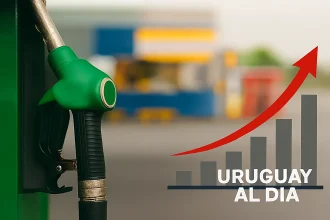MADRID, 14 (EUROPA PRESS)
S&P Global Ratings has upgraded India's long-term sovereign debt rating by one notch to 'BBB' from 'BBB-', with a stable outlook, despite Donald Trump's recent threat to double the scope of tariffs on India's exports to the United States to 50%. The rating agency believes the impact on the Indian economy "will be manageable."
The agency emphasizes that this rating upgrade reflects India's growth momentum in a tightened monetary policy environment that bolsters inflation expectations, along with the country's government's commitment to fiscal consolidation and efforts to improve the quality of spending, which "have combined to benefit credit metrics."
India thus remains among the "world's best-performing" economies, following a notable recovery from the pandemic. GDP growth is forecast at 6.8% annually over the next three years, which has a dampening effect on the public debt ratio, despite the large fiscal deficits that remain.
"We believe the impact of US tariffs on the Indian economy will be manageable," the rating agency said, noting that India is relatively less dependent on trade and that around 60% of its economic growth comes from domestic consumption.
In this regard, if the country is forced to stop importing Russian oil due to pressure from the US, S&P Global predicts that the fiscal cost, if borne entirely by the Indian government, "will be moderate," given the narrow price gap between Russian crude and current international benchmarks.
On the other hand, while India's weak fiscal environment has always been the most vulnerable aspect of its credit profile, the agency believes that, with the economic recovery well underway, the government can chart a more concrete, albeit gradual, path toward fiscal consolidation. Projections indicate a deficit of 7.3% of GDP for fiscal year 2026, declining to 6.6% by fiscal year 2029.
Regarding monetary policy, S&P Global highlights that the reform to adopt an inflation targeting system "has borne fruit" and expectations are better anchored than a decade ago. Thus, over the past three years, despite volatility in global energy prices and supply disruptions, CPI growth has averaged 5.5%, having reached double digits on numerous occasions between 2008 and 2014.
In its analysis, the rating agency notes that we could downgrade India's credit rating if it sees an erosion of political commitment to consolidating public finances, as well as if it witnesses a substantial, structural slowdown in economic growth that undermines fiscal sustainability.
On the other hand, a sovereign rating upgrade could be considered if fiscal deficits are significantly reduced, so that the net change in overall public debt falls below 6% of GDP, structurally.















